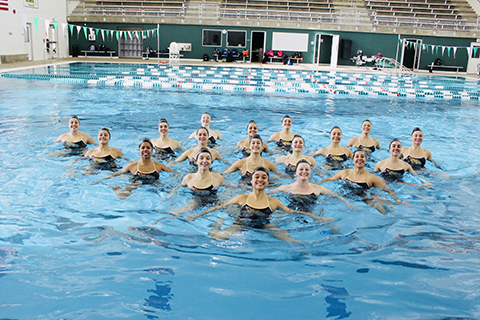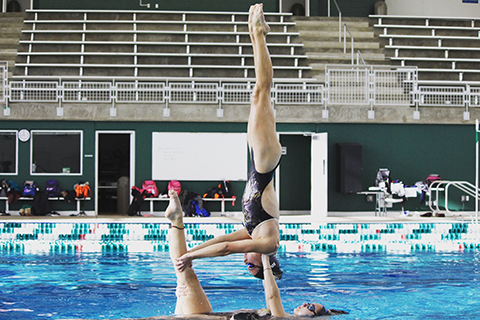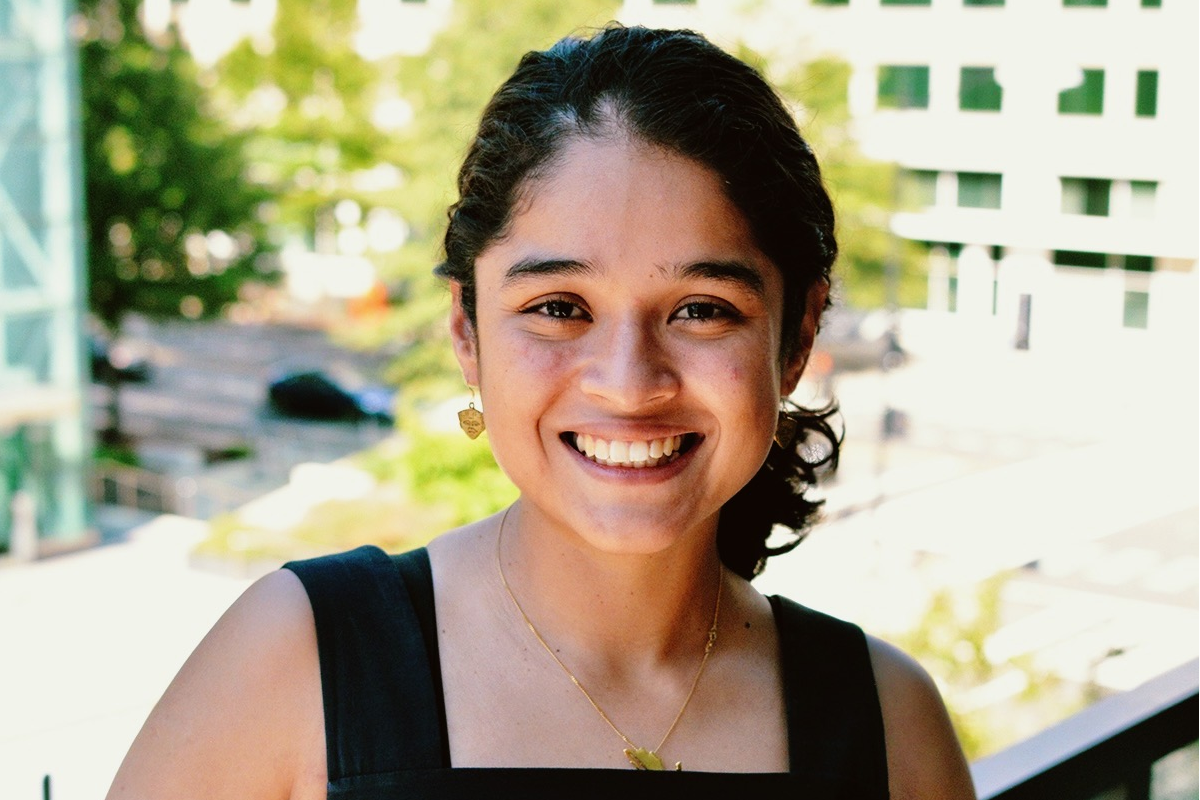In the pool or in any health care setting, leadership you can count on
Coral Alonso Garcia was born out of sync. There’s a last time for everything.
Advised by a physician that exercise would be good for her premature baby’s development, Garcia’s mom found a nearby swimming pool, and it wasn’t long before the child made a splash: “I was really pretty good,” Garcia remembers of what would be a 10-year competitive swimming journey, “but I got bored about it, just swimming laps and stuff. … I was just a little girl.”

One day, Garcia and her mom happened to be watching the Summer Olympics on TV and—what was that? “I thought, ‘Oh, that looks cool! They’re kind of doing gymnastics … and they’re swimming … and at the same time there’s music!’ ” It was synchronized swimming. “My mom was, like, ‘OK, let’s find you a place.’”
“More than anything, it’s remembering why we are here.”
It was a perfect fit. Garcia again excelled, eventually joining Team Mexico and, spotted at an international tournament, was offered a scholarship to join Lindenwood University in Missouri. “I had no idea where Missouri was. It’s not one of the places you hear about in Mexico.” In fact, as she learned later, Garcia had become the first Mexican synchronized swimmer ever recruited to the United States, and the first in her family to make the journey. Her English was “OK, not great.” But a scholarship is a scholarship, so she jumped at the opportunity.

Lindenwood wasn’t much on training facilities (a pool at a local high school). “We went to Ohio State and they had this huge, amazing pool, personal coaches for all the swimmers.” But what it lacked in amenities, Lindenwood more than made up for in its United Nations recruiting efforts like the one that netted Garcia. “There were Russian swimmers, there were Olympic medalists from Spain …” And there was a universal language: Trust, built on eight-hour days together in the water, in the gym, in ballet or gymnastics training. “It can take a whole year to perfect one three-minute routine”—until the teammates know it upside-down, sideways, with music or counting it out by hand.
“They have these speaker systems so you can hear underwater,” Garcia says. “They’re very expensive, so usually only at big international events. And sometimes they stop working.” The judges don’t care. “So I’m looking frantically at my teammates [Garcia mimics pounding a hand into her opposite palm]: 1-2-3-4-5-6-7-8!”
Garcia’s Lindenwood Lady Lions would beat Ohio State, and Stanford University, and … anybody in their path to four straight national championships and, for her, a lesson in leadership that she has brought to nursing as a master’s student at Johns Hopkins. “More than anything, it’s remembering why we are here. The most important thing I learned while training eight hours a day was, ‘OK, we’re tired. But we are already here. So we need to do the job well.’ ” Same with any health care setting. “We all have different lives, we all have different problems. … We are going through stuff outside. Still, we must depend on each other. That kind of leadership I always translate to my classmates: Yeah, I know we’re tired and everything, but let’s do our best anyway. We are there for the patient.”
Oh, and remember to breathe.
Today, Garcia holds two business degrees including an MBA from Lindenwood, which has dropped its synchronized swimming program (“It makes me very sad,” Garcia says), and she no longer spends much time around swimming pools. She figured business might give her a marketable skill if she had needed to return to Mexico. The nursing profession in Mexico is very different than in the U.S., says Garcia, whose parents are physicians. But she was determined to be a force in health care, so Garcia applied to one nursing school—guess which one—and the judges were impressed. (They remain so: In January, Garcia learned she’s been accepted into the Doctor of Nursing Practice program for psychiatric health.)
She’s no fish out of water at Johns Hopkins, using her cultural background to her advantage and to best serve Hispanic communities. “Spanish has been a huge help because the Latinx community is growing a lot here in Baltimore and everywhere, honestly. Just being able to communicate with them, and culturally I really can understand them.”
Synchronized swimming (and coaching) are now behind her, but Garcia is excited for the opportunities ahead, ready to walk in perfect time through the doors that have opened since she established her U.S. residency. “It’s really true how that changes your whole life.”
Read more profiles from the “We Are All East Baltimore” series.

